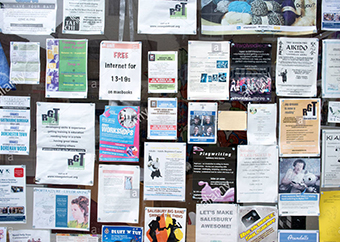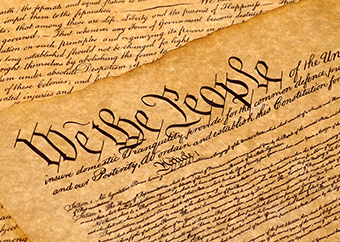



![]()

Although most people know that free speech is guaranteed in the Constitution under the 1st Amendment, there are other federal, state, and campus laws or policies that govern freedom of expression. Below, see the links to laws, policies, and resources that can help you explore your rights, and better understand your options related to freedom of speech.
1st AmendmentPart of the US Constitution and the short sentence to which all other laws and policies must abide, this is the original guarantee of all freedom of expression in America.
CaliforniaConstitution Article 1 sec 2(a)Although already generally protected via the 1st Amendment, the California Constitution goes on to further confirm freedom of speech for both individuals and the press.
CaliforniaCode of Education Sec 66301This section of California law, specifically the Education Code, confirms that all University of California, California State, and California community college districts may not limit freedom of expression as described in the California Constitution and federal 1st Amendment laws above.
EO20-006 Time, Place, and Manner of ExpressionAlthough, as a state entity, our campus guarantees freedom of speech on its property, the law allows some limits in order to protect the primary mission of education. This takes the form of an Executive Memorandum which was signed and approved in 2020 by President Gayle Hutchinson after being reviewed and recommended for approval by the Cabinet and Academic Senate. This document confirms access to and any limitations applied to freedom of expression on campus grounds.
Campus Publicity ProtocolThis downloadable PDF page outlines policies for all types of publicity on campus including the posting of flyers, sandwich boards, lawn stakes, and prohibited activities such as chalking on campus.
Free Speech and Expression Resources
Managing difficult discussions
Universities are, ideally, spaces where we challenge and encourage each other to expand our thinking. Contentious discussions can be difficult for everyone involved. Guidelines for managing hot topics and how to have productive group conversations can help you navigate.
De-escalating situations
There is no magic recipe for keeping troubling things from happening in the world. But with basic de-escalation techniques, you can respond to these kinds of events in a way that is constructive, positive, and impacts real resolution.
Practice your response
By considering what you might do in various scenarios, you can be prepared for different situations. These protest scenarios and reactions from UC Davis can help you plan for disagreeing with speakers, civil disobedience, addressing administration
Applying Your Free Speech
The PEN America website is a great resource for the application of freedom of speech on college campuses. The site includes information on academic freedom, protests, invited speakers, hate speech, and more. Also provides great, real-world, examples, and sorts resources from the administrator, faculty, and student viewpoint.
